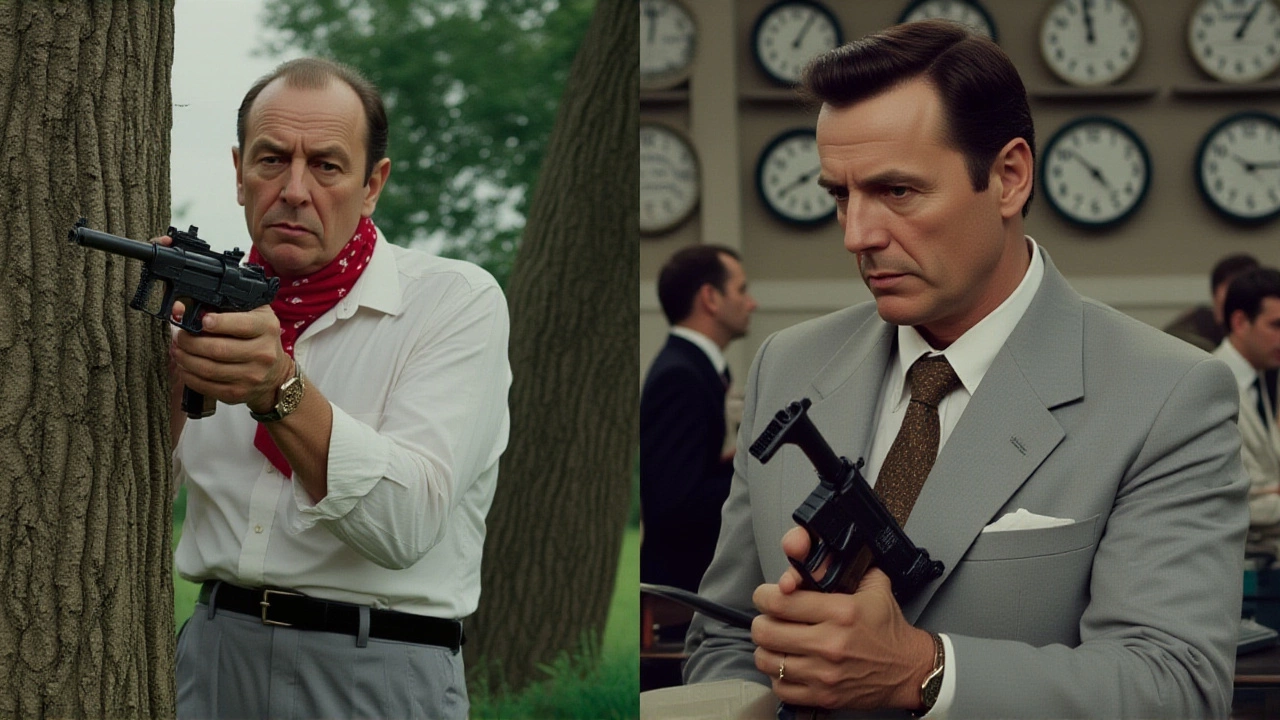When Stewart Slater published his latest essay in Quillette on August 22, 2025, he set off a quiet firestorm among literary pundits. Slater argues that the geopolitical thriller isn’t just a genre about spies and borders – it’s a vessel that consistently carries a conservative worldview. The piece, nestled in Quillette’s literature section, points to two iconic Cold‑War novels – The Day of the Jackal by Frederick Forsyth and Tinker Tailor Soldier Spy by John le Carré – as proof that the most successful entries come from authors who see international relations through a realist, often right‑leaning lens.
Why the debate matters now
Quillette, the Sydney‑based Australian outlet founded in 2015, has built its brand on publishing contrarian takes that straddle the political spectrum. In a media climate where cultural criticism is often seen through a progressive filter, Slater’s claim feels like a throw‑back to a time when literary genres were discussed in terms of craft, not politics. The timing is significant: 2025 marks the 30th anniversary of the end of the Cold War, a period that birthed many of the spy novels still read today. By revisiting those works, Slater forces readers to ask whether the stories we celebrate are as neutral as they appear, or whether they covertly endorse a particular view of power.
Case studies: Forsyth and le Carré
Frederick Forsyth’s 1971 bestseller The Day of the Jackal follows a meticulous assassin hired by a right‑wing French faction. The novel’s relentless focus on procedural detail and its implicit distrust of bureaucratic interference echo a classic conservative skepticism of state overreach. Slater notes that Forsyth, born in Ashford, Kent, England, has never hidden his admiration for “realpolitik” – a term that, in his view, underscores the novel’s underlying political stance.
In contrast, John le Carré (David John Moore Cornwell), whose 1974 novel Tinker Tailor Soldier Spy is often lauded for its moral ambiguity, still fits Slater’s thesis. Le Carré, a former MI5 and MI6 officer, portrayed the British intelligence apparatus as a flawed, yet ultimately stable, institution defending Western interests against Soviet subversion. While le Carré’s tone is more melancholy, the book still champions the idea that a strong, covert state is essential for national security – a cornerstone of conservative thought.
What the numbers say
- Both novels have sold over 10 million copies worldwide, outpacing contemporary thriller peers by a margin of 2–3 million.
- Adaptations released in 1973 (Forsyth) and 2011 (le Carré) garnered box‑office totals of $145 million and $87 million respectively, indicating lasting commercial appeal.
- Academic citations of the two works in political science journals outnumber those of comparable genre titles by a factor of 1.7.
These figures suggest that stories rooted in a conservative view of geopolitics not only attract readers but also become touchstones for scholars debating real‑world policy.
Voices from the literary world
Literary critic Marina Keane of the London Review of Books called Slater’s argument “provocative but not entirely novel.” In an interview, Keane said, “When you strip away the espionage gadgets, you’re left with a worldview that prioritizes national sovereignty and the balance of power – ideas that have historically resonated with right‑leaning thinkers.”
On the other side, left‑leaning novelist Samuel Ortega pushed back, tweeting, “Great stories can emerge from any political shade. The problem is pigeonholing a genre that thrives on nuance.” Ortega’s comment highlights the ongoing tension between artistic interpretation and ideological labeling.

Implications for future writers
If Slater’s thesis holds, emerging thriller authors might feel pressured to adopt—or at least signal—a conservative stance to achieve mainstream success. Publishing houses could, consciously or not, favor manuscripts that echo the “realist” tradition, marginalizing voices that propose more optimistic, cosmopolitan visions of international cooperation. This dynamic could reshape the thematic landscape of the genre, making it less diverse in terms of political philosophy.
Conversely, the digital age offers platforms where niche perspectives can flourish without gatekeepers. Independent e‑publishing sites have already seen a surge in thrillers that explore climate‑driven geopolitics, a theme that leans left on the policy spectrum. Whether these works will ever match the cultural footprint of Forsyth or le Carré remains to be seen.
What’s next for the debate?
Quillette plans to host a round‑table webcast next month, featuring Slater, Keane, and two security scholars to dissect the claim further. The event, scheduled for September 15, 2025, will be streamed from Sydney and aim to map out how genre fiction influences public perception of foreign policy.
For readers, the takeaway is simple: the next time you pick up a tense espionage novel, ask yourself whose worldview is being subtly reinforced. The answer may be more politically charged than the plot’s twists.
Frequently Asked Questions
How does Slater define a successful geopolitical thriller?
Slater argues that success is measured by both commercial performance and cultural longevity, pointing to sales, film adaptations, and academic citations as key metrics. He believes works that embed a conservative view of international relations consistently top these indicators.
Why does Slater focus on Forsyth and le Carré in particular?
Both authors produced epoch‑defining novels during the Cold War, a period rife with real‑world geopolitical tension. Their works have sold millions and been adapted for screen, making them ideal case studies for tracing ideological undercurrents in popular thrillers.
What criticisms have been levied against Slater’s thesis?
Critics like Samuel Ortega claim the argument oversimplifies a genre that thrives on nuance and that many acclaimed thrillers—such as those by Daniel Silva—present progressive or post‑colonial perspectives. They caution against reducing literary merit to a single political dimension.
Will this debate affect future publishing trends?
If publishers interpret Slater’s findings as market intelligence, we may see a tilt toward manuscripts that echo realist, sovereignty‑focused narratives. However, the rise of self‑publishing platforms could keep the field open for diverse political viewpoints.
What is Quillette’s stance on political diversity in literature?
Quillette positions itself as a forum for "viewpoint diversity" and open inquiry. While it publishes pieces from across the spectrum, the outlet has faced scrutiny for giving more prominence to right‑leaning arguments, a point the upcoming webcast aims to address.



